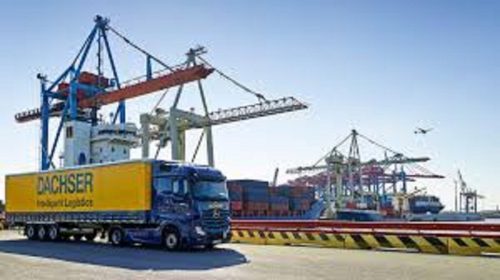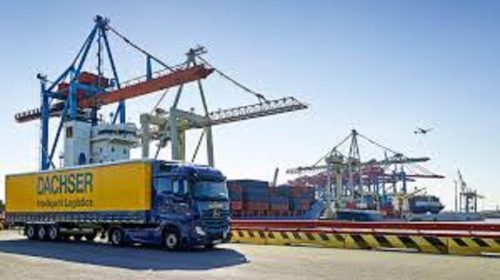Through New Regulations Incoterms 2020 and IMO 2020
regulations change rules for buyers, sellers and shippers of goods in
international trade
As Incoterms 2020 and IMO 2020 begin to impact the shipping
industry, Dachser is poised to guide its customers through these new
regulations to ensure compliance and minimal disruption.
“We understand our customers need to be focused on their
core business, so they rely on us to develop a deep knowledge of industry
regulations that enables us to provide guidance to keeps their businesses
operating at full strength. A lack of compliance can slow down the movement of
cargo, creating log jams throughout the supply chain, which can ultimately
result in missed deadlines and lost revenue“ said Guido Gries, Managing
Director, Dachser Air & Sea Logistics Americas.
Incoterms 2020
The updated Incoterms include a number of changes. Issued by
the International Chamber of Commerce ICC, the new Incoterms 2020 rules
identify the responsibilities of buyers and sellers for the delivery of goods
in international trade, such as transfer of goods to the buyer, transport
costs, liability for loss of and damage to goods, and insurance costs.
A key goal of adapting the Incoterms for 2020 was to ensure
they relate to current global trading practices and that they are more user
friendly and easier to understand. Written in plain unambiguous language, these
regulations were revised by 500 experts from more than 40 countries. The
clauses are recognized worldwide and are being used in more than 30 different
languages. Dachser is well prepared to guide its customers through these new
rules for their logistics requirements.
Incoterms 2020
introduces new terms and removes and modifies existing terms. In particular,
the main changes are the following:
FCA and On-Board
Bills of Lading: Perhaps the most significant change relates to the term
Free Carrier (FCA). For goods sold under the FCA clause and intended for sea
transport (such as goods in containers), FCA stipulates the seller is
responsible for either making the goods available at its own premises or at a
named place. In either case, the seller is responsible for loading the goods on
the buyer’s transport. The buyer and seller may agree that the buyer will
instruct its freight carrier to issue an on-board bill of lading to the seller
after the goods have been loaded. At the same time, the seller is then obliged
to hand over this on-board bill of lading to the buyer.
Different Levels of
Insurance Cover in CIF & CIP:
Cost Insurance and Freight (CIF) and Carriage and Insurance Paid To
(CIP) are the only two Incoterms that identify which party must purchase
insurance for at least part of the export journey. In both cases that
responsibility falls on the seller. In Incoterms 2020 rules, the seller is
responsible for purchasing a higher level of insurance coverage — at least 110%
of the value of the goods as detailed in Clause A of the Institute Cargo
Clauses — under the revised term CIP. The insurance requirement hasn’t changed
for CIF.
DAT becomes DPU: The renaming of the term Delivered at Terminal (DAT) to Delivered at Place
Unloaded (DPU). It was renamed because sometimes the buyer and/or seller want
the delivery of goods to occur somewhere other than a terminal.
Own Transportation: Incoterms 2020 rules recognize those sellers who may use their own transport to
deliver the goods. The terms state that sellers now can make a contract for
carriage or simply arrange for the necessary transportation for FCA, DAP,
Delivery at Place Unloaded (DPU), and Delivered Duty Paid (DDP) transactions.
Security-Related
Requirements: Import and export security requirements have increased and
are more formalized, and Incoterms 2020 rules specifically call out those
requirements for buyer and seller responsibilities under each of the trade
terms.
Sea News, January 22



